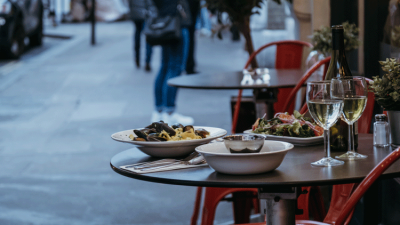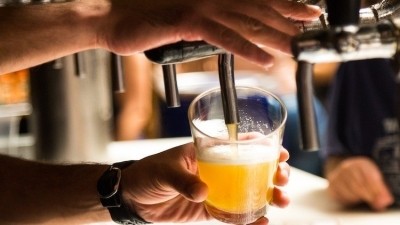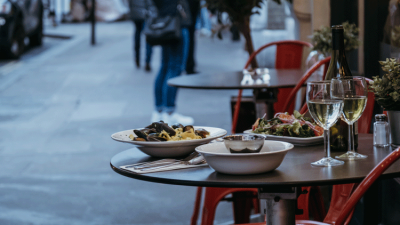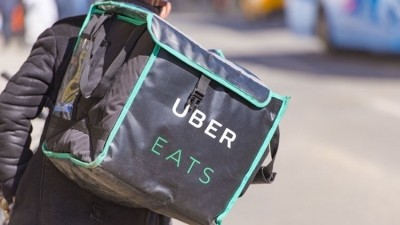Alfresco April – what are the rules for opening outdoors?
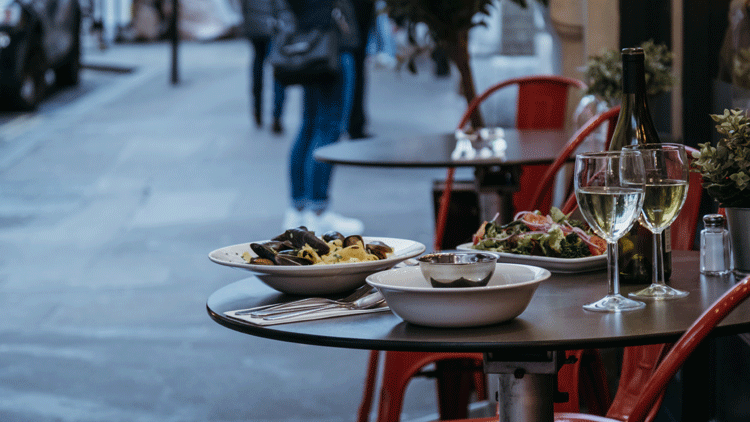
What constitutes an ‘outside space’?
Put plainly, it means any area that isn’t indoors. This can include beer gardens, terraces, and – license permitting – pavement space in front of venues. Some operators may wish to erect outdoor shelters, which they can – the Government recently announced that businesses such as pubs and restaurants, including those with premises that are in listed buildings, will be able to erect gazebos and marquees without obtaining planning permission in a bid to get more of the sector open on 12 April. The temporary shelters will be allowed to be kept up for the whole summer, rather than the 28 days currently permitted. To be considered ‘outdoors’, shelters, marquees and other structures can have a roof but need to have at least 50% of the area of their walls open at all times whilst in use.
Do I need to test my staff for the virus?
Testing staff is not a requirement, but it is encouraged. Employers with over 10 employees who cannot offer on-site testing can order rapid lateral flow tests to test employees, providing the business is registered in England and employees cannot work from home. The test kits are entirely free of charge until 30 June 2021 for businesses that register by 12 April. For more details and to register your business, click here.
Do staff have to wear masks?
The guidance makes clear that staff are only required to wear masks in indoor hospitality settings, it is not mandatory that they are worn outdoors. It says: “Employers must ensure all staff of venues that provide food and drink wear face coverings in indoor areas that are open to the public and where they come or are likely to come within close contact of a member of the public, unless they have an exemption. Employers must not, by law, prevent their staff from wearing a face covering where they are required to do so.” Businesses are expected to provide face masks for staff as part of their health and safety obligations. However, staff are welcome to use their own face coverings if they choose.
Can customers enter premises to use the toilet?
They can, yes. The guidance notes that toilets should be kept open and ‘carefully managed’ to reduce the risk of transmission of Covid-19. This includes using signs and posters to build awareness of good handwashing; social distancing markers in areas where queues normally form, and the adoption of a limited entry approach; making hand sanitiser available on entry to toilets; and keeping the facilities well ventilated.
Do customers need to wear masks when inside a premises for paying or using the toilet?
Yes, similarly to staff, customers of venues that provide food and drink are required to wear a face covering indoors, unless they have an exemption. This includes when going to the toilet, or if they have to go inside to pay.
Do my staff need to have been vaccinated?
No, there is no requirement for staff to be vaccinated in order to work.
Will takeaway pints be permitted?
Yes! With the move to the next phase on the Government’s roadmap, restrictions on the sale of takeaway alcohol are being lifted. The guidance states: “From Step Two, hospitality venues will also be allowed to provide takeaway alcohol. Takeaway food and drink (including alcohol) must not be consumed on the premises or adjacent to the premises.”
Are businesses able to take payments inside?
Yes, but only as a last resort. There had been rumours circulating that guidelines were being drawn up that would ban pubs from taking payments indoors, but the Department for Business, Energy & Industrial Strategy confirmed yesterday in a tweet yesterday (8 April) that this was not the case. It said: “There is no ban on taking payment indoors when pubs reopen from 12 April. Payment should be taken outdoors where possible, but can be taken indoors as a last resort. This is to limit time indoors where transmission of the virus is higher.”
Do seats/tables have to be socially distanced when outside? If so, what are the rules?
They do, yes. As before, the rule is that seating plans should follow distancing rules of either two metres, or ‘one metre plus’ with risk mitigations where two metres is not viable. When calculating the maximum number of customers that can reasonably follow social distancing, operators are asked to take into account total outdoor space, specific venue characteristics such as furniture, pinch points and busy areas, so as to ensure the venue, including areas of congestion, does not become overcrowded.
Is there a curfew?
No! In England the curfew on hospitality has been ditched, meaning there is no longer any blanket restriction on opening times for venues.
Do customers need to order a substantial meal with alcohol?
No, they do not. As with the curfew, this policy has (thankfully) been scrapped… so no more debates about how many scotch eggs people need to consume if they want to have a beer this time.
How many people from different households can meet at my premises?
Outdoor gatherings are currently limited to six people or two households, with a support bubble counts as a single household. The guidance minds businesses not to intentionally facilitate gatherings between a greater number of people than is permitted, and should ‘take steps to ensure customer compliance’ with social contact rules.
Can customers order inside at a counter or bar?
Sadly, for now, customers ordering a beer or cocktail from the bar is a big no-no. At venues serving alcohol, customers are required to order, be served and eat/drink while seated (even if no alcohol is ordered). However, at venues that do not serve alcohol, such as coffee shops and cafés, customers are able to order and collect food and drink from a counter, but must consume food and drink while seated at a table.
Will ‘vaccine passports’ be required?
‘Vaccine passports’ – officially known as Covid-status certificates – are not currently required. Businesses are not obligated to check whether customers have had the vaccine, or a recent negative Covid test.
Are operators still required to collect track and trace details?
The guidance states that: “The opening up of the economy is reliant on NHS Test and Trace being used to minimise transmission of the virus.” As such, the requirements around Test and Trace have been beefed up. Whereas before you were only required to collect the details of one member of a booking party, it is now mandatory to ask every customer or visitor aged 16 and over to check in to your venue or provide their contact details. This can be done using the NHS Covid-19 app to scan in the NHS QR code poster. However, businesses are also required to have a system in place to ensure that you can collect information from your customers and visitors who do not have a smartphone or do not want to use the NHS Covid-19 app. In these cases, operators must keep this data for 21 days, and provide it to NHS Test and Trace if it is requested. Businesses operating a service where food and drink is not for consumption on the premises are not required to comply with these requirements.
Do I have to deny entry to customers who don’t comply with track and trace?
Yes. The guidance states that businesses must “take reasonable steps to refuse entry to those who refuse to check in or provide contact details”.
To read the complete, updated Government guidance, click here.
